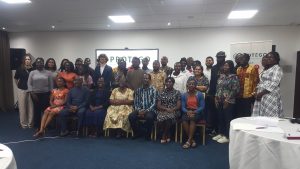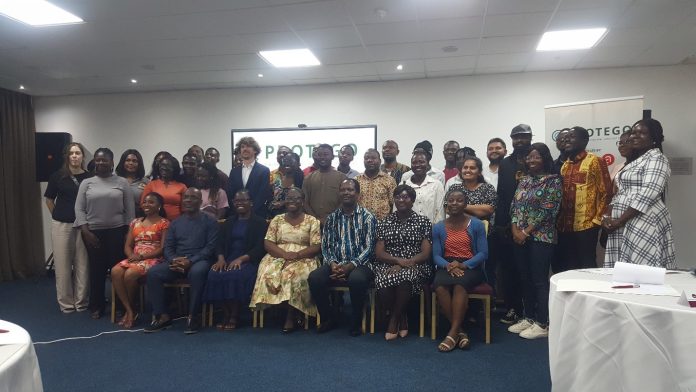Stakeholders in Ghana’s environmental sector have called for urgent reforms, stronger enforcement, and clear national direction to address the growing problem of marine litter.
The event, held in Accra, July 8, 2025- forms part of the three-year Prevention of Marine Litter in the Gulf of Guinea (PROTEGO) initiative funded by the German Federal Ministry for Environment, Nature Conservation, and Nuclear Safety.
The initiative is led by adelphi Research. It is being implemented by key institutions and NGOs in Ghana and Nigeria including- Plastic Punch, Ghana National Cleaner Production Centre (GNCPC), Nigeria Climate Innovation Centre, among others.
The PROTEGO seeks to support waste management and circular economy practices that reduce marine pollution in West Africa.
The discussion focused on clarifying practical policy steps that the country must take to reduce plastic waste and other forms of marine litter that pollute rivers, beaches, and the ocean. Additionally, it emphasised the need to move beyond talk and documentation, and toward action that delivers results at both local and national levels.
Clem Oguoji, Regional Project Coordinator for PROTEGO, in a post-event media engagement said solving the problem will require collective effort.
“This is not a problem the government can solve alone, and it is not something the private sector can fix by itself,” he said.
He called for what he described as a “multi-stakeholder collaboration”- involving government, industry, development partners, local authorities, and citizens.
According to him, government must lead with clear policies and strong enforcement, while the private sector must rethink how it designs and packages products, especially those made of plastic.
“Industry must realise that things cannot continue the same way. Some changes will cost a bit more, but protecting the environment is worth it. Recyclable packaging, reduced plastic use, and alternative materials are all important” he said.
He also highlighted the role of citizens and local authorities in waste management. He said the public needs to be supported with basic tools like waste bins and proper waste pickup systems to do their part responsibly. He insisted that those who break environmental rules- whether businesses or individuals- must face clear consequences.
Clem pointed to successful examples of government leadership in countries like Rwanda and Kenya, where strict enforcement and a clear national vision have transformed how waste is handled. He stressed that the nation needs the same level of direction and seriousness.
He also noted that country lacks the basic infrastructure needed to make proper waste disposal easy for citizens. Many communities do not have nearby dumps or waste bins, and when they try to separate their trash, all the waste often ends up in the same truck anyway. He said this discourages the public from doing the right thing.
Furthermore, Clem said that the recycling industry needs support. “Recycling is expensive- from collecting and cleaning to actually converting the material,” he said.
He recommended that the government offer subsidies or tax breaks to make local recyclers more competitive, both locally and internationally.
The workshop also featured examples of successful policies from other countries, showing how a mix of innovation, community action, and investment can reduce marine litter.

Richmond Kennedy Quarcoo, Head of Plastic Punch described the dialogue as a crucial step in building practical solutions. He noted that the ideas developed will be refined through further stakeholder consultations and added to national action plans.
“The dialogue used adelphi’s policy prototyping approach, a method that encourages collaborative thinking and solution-building. Instead of simply reviewing the problem, the participants worked in groups to co-develop new policies that can be tested, refined, and integrated into the country’s national strategy on waste,” he also said.
The event brought together players from government, industry, civil society, academia, and development partners.
The PROTEGO project supports marine litter prevention and circular economy solutions in the Gulf of Guinea.










